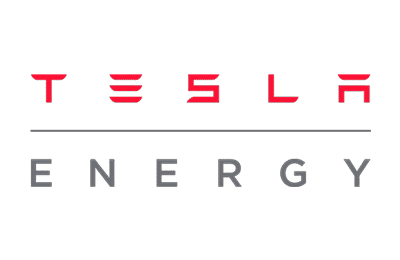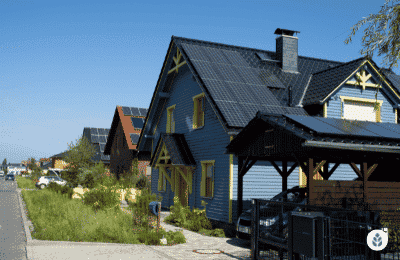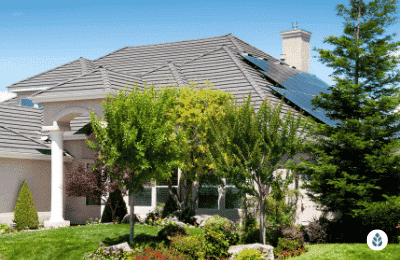
Top 7 Best Solar Companies in Oregon (2024 Reviews)
In this guide to Oregon’s best solar providers, you’ll learn:
- What are the top solar companies in OR?
- How can you save money when going solar in The Beaver State?
- What qualities are most important for Oregonians to look for in a solar provider?
Each product and or company featured here has been independently selected by the writer. You can learn more about our review methodology here. If you make a purchase using the links included, we may earn commission.
Oregon is a great place to go solar overall. With below-average solar equipment costs and above-average energy needs, customers spend less per watt for solar panels and end up saving an average of over $21,976 on energy bills over the life of their systems. However, with 70+ installers to choose from, picking a solar company to handle your solar project can be the most difficult part of the process.
In this guide, we’ll provide our list of what we believe are the best solar companies in Oregon. We’ll explain why we think each of these is likely to meet and exceed your expectations, and we’ll discuss what we recommend looking for in a solar provider in your area, specifically.
What Are the Best Solar Companies in Oregon?
We’ve spent hours researching solar companies in Oregon, and below are what we feel are the best in the area:
- SunPower: Best National Provider
- Blue Raven Solar: Best Financing Program
- Tesla: Best Technology
- Sunbridge Solar: Best Regional Provider
- Northwest Power: Best System Customization
- A&R Solar: Best Local Installer
- Sunlight Solar Energy: Best Customer Service
You might be surprised not to see some other national solar providers on our list, including Solgen, Lumio and SunRun. We’ve made a conscious decision not to rank these companies due to issues with customer service, ongoing litigation and other issues we think might have a negative impact on your overall experience.
Compare Oregon’s Top-Rated Solar Providers
Overall, we suggest going solar with SunPower or A&R Solar. The former provides wide-scale availability and high-performing panels, and the latter offers outstanding customer service and localized experience.
The table below includes a side-by-side look at these solar panel installation companies and how they compare to our other picks for the best solar companies in Oregon.
| Solar Providers | Superlative | Our Score | Avg Cost ($–$$$$$) | Warranty | Financing Options | Get Quote |
| SunPower | Best National Provider | 5/5 | $$$$ | Varies – minimum of 25 years for equipment, workmanship and production | Cash, solar loan, solar lease, PPA | Get Quote |
| Blue Raven Solar | Best Financing Program | 4.5/5 | $$ | 25 years for equipment and performance; 10 years for workmanship | Cash and solar loans | Get Quote |
| Tesla | Best Technology | 4.5/5 | $$ | 25 years for equipment and performance; 10 years for workmanship | Cash, solar loan, solar lease, PPA | Get Quote |
| A&R Solar | Best Regional Provider | 5/5 | $$$$ | 25 years for equipment and performance; 10 years for workmanship | Cash, solar loan | Get Quote |
| Sunbridge Solar | Best Customer Service | 4.5/5 | $$$ | 25 years for equipment and performance; 10 years for workmanship | Cash, solar loan, solar lease, PPA | Get Quote |
| Power Northwest | Best System Customization | 4.5/5 | $$$$ | 25 years for equipment and performance; 10 years for workmanship | Cash, solar loan | Get Quote |
| Sunlight Solar Energy | Best Local Installer | 4.5/5 | $$$$ | 25 years for equipment and performance; 10 years for workmanship; 5-year reimbursement for production | Cash, solar loan | Get Quote |

SunPower
Pros
- Most efficient panels on the market
- National coverage
- Cradle to Cradle sustainability certification
- Great warranty coverage
Cons
- Expensive
- Customer service varies by local dealer

Blue Raven Solar
Pros
- Industry-leading in-house financing
- Competitive pricing
- Excellent reputation
Cons
- Doesn't offer solar batteries (coming 2022)
Blue Raven has what we consider the best solar loan program in the industry, which includes 18 months of interest-free financing.
Blue Raven only installs solar panels, but since batteries aren’t terribly popular in Oregon, we still think it’s a great choice overall, especially given the below-average price.
Why We Chose Blue Raven Solar as the Company With the Best Financing Program
The primary reason we picked Blue Raven Solar is the company’s solar loan program, BluePower Plus+. This loan makes it more affordable to convert to clean energy than just about any other loan available. It requires no down payment in most cases and lets you avoid interest for 18 months. The energy savings you’ll enjoy in that time can put a solid dent in your system costs and help pay down your loan for free.
Blue Raven also remains highly accessible because it has below-average pricing, which is especially helpful in a high-cost area like Oregon. On average, you can save a few thousand dollars on your equipment just by going with Blue Raven.
Additionally, Blue Raven Solar is a large national company, but it still provides above-average customer service. It has a very high 4.45-star rating with the Better Business Bureau (BBB) and a 4.5-star rating on Google Reviews.
What We Don’t Like
Blue Raven Solar has minimal service offerings in that it only installs panels. It stated that it would start offering batteries in 2022, but it has yet to add that service. Since the net metering policy in Oregon is so good, batteries usually don’t save you any money, but it would be nice to have the option.
Additionally, Blue Raven’s workmanship warranty only lasts for ten years. This is the industry average, but in a high-risk area like Oregon, where precipitation levels are above-average, we’d love to see lengthier coverage.
Read our full review of Blue Raven Solar for more information.
Solar Products
Blue Raven installs panels made by SolarEdge, Trina, Canadian Solar and Hyundai. These are all tier-one solar brands that should be plenty efficient to provide significant solar savings, even in the low-sun conditions in Oregon.
The SolarEdge panels are the most affordable option, while the Trina panels have the highest efficiency rating and will be most likely to offset your energy consumption, even with the lack of sunlight in the area.
Blue Raven’s minimal service offerings mean there are no other products — like batteries, EV chargers or other home energy efficiency improvements — available. However, the company does install Enphase inverters, so the company can provide access to the Enphase mobile app for solar monitoring.
Financing Options
Blue Raven only accepts cash purchases and solar loans through its BluePower Plus+ financing program. We would like to see leases and PPAs offered for the sake of accessibility. However, the loan program is more accessible and affordable than most, with low interest rates and interest-free financing for 18 months.
We do still recommend a cash purchase if you can make it work, as it’s the most beneficial option overall. Since solar system costs are above-average in Oregon, though, most customers will likely prefer the financing option.
Warranty Information
Blue Raven Solar includes a standard 25-year equipment warranty, as well as a longer-than-average 25-year efficiency warranty. The labor warranty of 10 years is in line with the industry average.
Although the workmanship warranty is average, we really would like to see longer coverage in an area like Oregon, where excessive rainfall can expose problems in improperly installed solar panel systems.
Facts and Figures: Blue Raven Solar
| EcoWatch Rating |
|---|
| Better Business Bureau (BBB) Rating |
| Year Founded |
| Average Cost ($-$$$$$) |
| Solar Services |
| Brands of Solar Equipment Offered |
| Warranty Coverage |
| 4.5 |
| A+ |
| 2014 |
| $$ |
| Solar Panels, System Monitoring |
| Trina Solar, Canadian Solar, SolarEdge, Silfab, SunPower |
| 25-year manufacturer warranty; 10-year workmanship warranty, 2-year production guarantee |

Tesla Energy
Pros
- Price-match guarantee
- Sleek, efficient and durable solar panels
- Best solar battery on the market
Cons
- Some reported issues with customer service
- Customer service varies by local dealer
As a tech company, Tesla’s panels work seamlessly with other Tesla products, making for an easy-to-use system and a pleasant overall experience.
Tesla outsources installations, which can cause issues with customer service, but we still think it’s a company worth considering for going solar in Oregon.
Why We Chose Tesla as the Company With the Best Technology
Tesla used to manufacture its own panels but now uses QCells solar cells to deliver above-average energy efficiency, which is ideal in areas with low sun exposure, like Oregon. The other performance specifications are above-average as well, including a low degradation rate that will leave your panels producing sufficient energy for years to come.
Tesla also manufactures the Tesla Powerwall, the most popular solar battery in the industry, as well as its own EV charger. The battery works seamlessly with your panels to make the best use of your solar energy and maintain power for your home through blackouts. It’s even equipped with StormWatch, which automatically prepares your system to charge up and be ready to go off-grid.
Tesla’s EV chargers are also a fast-charging and reliable option for saving money on charging your electric vehicle. Although they’re designed to work with Tesla cars, they can be adapted to charge any EV.
What We Don’t Like
Tesla focuses on manufacturing and outsources the installation of its products to third-party companies. As such, your customer service experience can vary quite a lot, depending on which company gets assigned to your solar project. As a large company, Tesla isn’t able to guarantee a positive experience.
Additionally, Tesla only installs a single brand of panels and its own add-on equipment. That means you’re limited in your options and can’t choose the brand that suits your needs, like low upfront costs or maximum long-term performance. With that being said, the equipment available does outperform many other options.
Read our full review of Tesla for more information.
Solar Products
Tesla currently only installs QCells panels. These have an above-average efficiency rating of 21.4%, which should be plenty to produce sufficient energy in Oregon, even in the low-sun conditions.
QCells panels also have great performance specs all around, and they come at a slightly lower price than many competitors. Tesla offers price matching, so you’re guaranteed to get the lowest price possible for the QCells panels around.
Below is a list of other products Tesla installs in Oregon:
- Tesla Powerwalls — most Oregonians only need batteries if they want to avoid power outages, given the great net metering program in the state
- Tesla EV chargers
- Tesla solar roofing
- The Tesla solar monitoring app
Financing Options
Tesla accepts cash payments, solar loans, solar leases and PPAs, which makes it a highly accessible solar company in Oregon. We strongly recommend paying in cash, which is more accessible with Tesla than many other companies, thanks to the below-average pricing.
A loan is a great option to keep upfront costs down, and we generally only recommend leases if you can’t make cash or a loan work for you. PPAs are the least beneficial, but they are the most accessible option, with no down payment requirements and minimal credit requirements.
Warranty Information
Tesla includes a 25-year warranty for its equipment and the panel production. The equipment warranty is average, and the efficiency warranty lasts five years longer than the coverage from most competitors.
Tesla’s labor warranty lasts for ten years, which is also average. However, we really like to see longer coverages for workmanship in Oregon. The above-average rainfall can make errors in the installation process a serious issue. Still, the coverage is in line with what most other companies provider.
Facts and Figures: Tesla Energy
| EcoWatch Rating |
|---|
| Better Business Bureau (BBB) Rating |
| Average Cost ($-$$$$$) |
| Solar Services |
| 4.5 |
| C |
| $$ |
| Solar Panels, Solar Batteries, EV Chargers, Solar Roof Shingles, System Monitoring |
A&R Solar
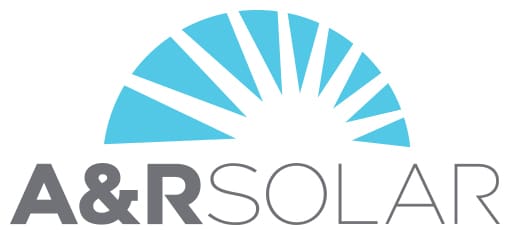
Average cost
Pros
- Years of local experience
- NABCEP-certified installers
- Outstanding customer service
Cons
- Expensive
- Not the best workmanship warranty
- No leases or PPAs
A&R Solar is what we consider the shining example of a solar company exclusive to the Oregon area. It couples incredible customer service with great warranty coverage and more.
The company is a little on the expensive side, but we feel it’s well worth the investment, given its expertise and quality.
Why We Chose A&R Solar as the Best Regional Provider
While national companies can be too large to provide great customer service, and local companies can sometimes have limited service areas and availability, A&R Solar provides the best of both worlds.
First off, it services all of Oregon and Washington State, and it provides local expertise that is unmatched. The representatives and salespeople take an educational approach to solar sales, which helps make solar more accessible. Its techs also have the local know-how to design a system ideal for your particular home, and they’re knowledgeable about and can help you file for local incentives, ultimately saving you money on your PV equipment.
A&R Solar also offers incredible customer service and maintains reviews that are well above average. Most customers are very pleased with the service, communication and attention they receive, which can be hard to find in an area like Oregon, where there are so many companies trying to keep up with demand and maximize profit.
What We Don’t Like
A&R Solar is a little more expensive than some competitors, but we strongly believe its above-average service, quality and customer care are worth the investment. People say you get what you pay for, and that could not be more true than it is with A&R.
A&R also has a ten-year workmanship warranty. While this is in line with the average in the industry as a whole, we would prefer to see a longer warranty, given how at-risk panels are in the area due to the weather. Still, we feel the company’s experience and local expertise help limit your exposure.
Solar Products
A&R Solar provides access to a nice range of panel brands, including SunPower/Maxeon — our top pick for panels overall — SolarEdge and QCells.
We recommend Maxeon panels for the efficiency, which are the best for taking advantage of the minimal sunlight in Oregon. The SolarEdge panels will probably be your preferred option if you’re looking to prioritize a low installation cost over panel efficiency. With that being said, all of these brands should serve you well in Oregon.
In addition to panels, A&R Solar can provide access to the following products and services:
- Tesla Powerwalls — two-battery minimum on installations
- Solar for new construction
- Commercial solar projects
- The MySunPower and Tesla solar monitoring apps
Financing Options
A&R Solar only accepts cash purchases and solar loans. These are our recommended payment options anyway, but we do prefer to prioritize companies that include low-cost options like leases and PPAs, too, as these are more accessible overall.
We recommend paying for your system in cash, as this means the greatest benefits and savings for you. However, if you can’t afford the slightly above-average pricing from A&R Solar, then a solar loan should also serve you well and lead to substantial savings over time.
Warranty Information
A&R Solar includes a 25-year equipment warranty, which is average in the industry, and a 25-year efficiency warranty from the panel manufacturers, which is five years longer than the industry average.
You also get a ten-year warranty for the workmanship, which is in line with the industry average. As mentioned previously, we do prefer above-average labor warranty coverage in higher-risk areas like Oregon, but the ten-year coverage is still quite good.
Facts and Figures: A&R Solar
| EcoWatch Rating |
|---|
| Better Business Bureau (BBB) Rating |
| Year Founded |
| Average Cost ($-$$$$$) |
| Solar Services |
| Brands of Solar Equipment Offered |
| Warranty Coverage |
| 5 |
| A+ |
| 2007 |
| $$$$ |
| Solar panel and battery installations, Commercial solar, Solar for new construction |
| Maxeon, QCells, SolarEdge |
| 25 years for equipment and efficiency, 10 years for workmanship |
Sunbridge Solar

Average cost
Pros
- Outstanding customer service
- Multiple financing options
- Nice array of services
Cons
- Not the best workmanship warranty
SunBridge Solar is a regional company that serves Oregon and Washington. It’s a B-Corp, offers outstanding customer service and remains accessible with a variety of payment options.
SunBridge is lacking a bit in its workmanship warranty, which is something to keep in mind in Oregon, where rainfall is above-average.
Why We Chose SunBridge Solar as the Best Regional Provider
SunBridge Solar couples the pricing and financing options you’d expect from a large national company with the customer service and attention you’d see from smaller local companies.
SunBridge maintains a stellar 4.9-star rating on Google Reviews and an A+ rating with the BBB. These ratings speak to how attentive the company is and how much it goes out of its way to keep customers happy. The company is also B-Corp-certified, which is a testament to how much the company prioritizes accountability and performance.
SunBridge maintains average pricing, which is helpful in an area like Oregon, where system prices are above average. It also accepts a variety of payment options to help keep its services accessible.
Lastly, SunBridge has a nice assortment of solar services, so you can customize your set-up with solar batteries and EV chargers to get the most out of your system.
What We Don’t Like
In our opinion, there’s really only one downside to SunBridge Solar, and that’s the workmanship warranty, which only lasts for ten years.
This is in line with the industry average, but we prefer companies that have longer coverage in areas of high rainfall, like Oregon. Rooftop solar systems that are exposed to heavy and frequent rainfall are more likely to run into issues, including roof leaks.
We do think the company’s experience and expertise limit that risk, but we’d still prefer a longer warranty for customer peace of mind.
Solar Products
SunBridge Solar installs Canadian Solar, SolarEdge, Hyundai and Silfab solar panels. These are all high-quality brands that should last for decades, even in Oregon’s wet climate.
If you’re looking for the most affordable installation possible, we’d recommend the SolarEdge panels. If you instead want to account for the below-average amounts of sunlight in Oregon and still have high production levels, the Silfab panels will likely be your best bet.
In addition to these panel brands, SunBridge also provides access to the following products and services:
- Enphase IQ solar batteries in multiple sizes
- EV charging stations, which are popular in Oregon given the prevalence of EVs
- The Enphase solar monitoring app
Financing Options
SunBridge keeps its services accessible by accepting cash, loans, leases and PPAs. Cash payments are going to be the most beneficial option since you won’t pay interest, and you’ll own your system immediately. That translates to greater net savings over time.
A loan is the next best option, although savings will be a little lower. Leases and PPAs can be good options if you can’t afford a cash purchase or qualify for a loan. However, the savings you’ll see are limited, and both options preclude you from taking the federal tax credit.
Warranty Information
SunBridge Solar provides a 25-year equipment warranty, which is average, and a 25-year efficiency warranty, which is slightly better than the average. You also get a workmanship warranty for ten years, which is in line with the industry average.
The only area we feel SunBridge falls a little short here is the workmanship warranty. Although it’s technically average, we like to see longer labor coverage in areas like Oregon, where rooftop panels are at greater risk of damage and weather-related issues.
Facts and Figures: Sunbridge Solar
| EcoWatch Rating |
|---|
| Better Business Bureau (BBB) Rating |
| Year Founded |
| Average Cost ($-$$$$$) |
| Solar Services |
| Brands of Solar Equipment Offered |
| Warranty Coverage |
| 4.5 |
| A+ |
| 2010 |
| $$$ |
| Solar panels, Solar batteries, EV chargers |
| Canadian Solar, SolarEdge, Hyundai and Silfab |
| 25 years for equipment and efficiency, 10 years for workmanship |
Power Northwest

Average cost
Pros
- Many equipment brands available
- Nice selection of services
- Great customer service
Cons
- Expensive
- Not the best workmanship warranty
- No leases or PPAs
Power Northwest is our top pick if you’re looking for customization options. In addition to panels, batteries and EV chargers, it also offers energy efficiency upgrades, which most installers don’t.
This installer is expensive and has limited financing options, but it’s still an option worth considering for the variety of products and services.
Why We Chose Power Northwest as the Best for System Customization
While most solar installers in Oregon offer panels and solar batteries, Power Northwest offers these products, plus EV chargers, roofing replacement and repair, electrical service panel upgrades and a slew of energy efficiency home improvements, including heating and cooling equipment.
With all of these options for equipment and services, customers can not only convert to renewable energy but also improve their efficiency and have an even better shot of reducing their carbon footprint and their energy bills.
As a relatively small regional company, Power Northwest is also able to provide excellent customer service and care. It has an incredible 4.9-star rating on Google Reviews and countless positive comments about its services. Its reps are also willing and able to help you file for local solar incentives, which can help you save money on your system.
What We Don’t Like
Power Northwest is a little more expensive than average, so the cost could be a deterrent for some homeowners. Additionally, the company only accepts cash purchases and solar loans, so the accessibility overall is a bit lacking. We do feel the quality you get is worth the money, but we prefer companies that keep their products more widely accessible.
Additionally, Power NW has a ten-year labor warranty, which is good and in line with the average, but we feel many Oregonians will be looking for lengthier coverage, especially given that the risk of system damage due to above-average precipitation is relatively high.
Solar Products
Power Northwest installs panels manufactured by Hyundai, QCells, SolarEdge, REC and SunPower, so the options are plentiful.
Of these brands, the SunPower/Maxeon panels are going to deliver the highest efficiency ratings, the best performance and the best chance of eliminating your energy bills, even given the low sunlight in the area. The SolarEdge panels have the lowest cost and can be useful for keeping installation prices lower.
Power Northwest also offers the following products and services, which are more plentiful than most companies offer:
- Tesla Powerwalls
- Span IO Smart Service Panels
- Roofing replacement and repair
- EV charging stations
- The MySunPower solar monitoring app
- The Tesla solar monitoring app
- Main electric panel service upgrades
- Energy efficiency upgrades, including Energy Star products and heating and cooling equipment
Financing Options
Power Northwest only accepts cash purchases and solar loans. These are our most recommended payment options, as they lead to panel ownership, let you take the federal credit and provide higher savings overall than leases and PPAs.
We would, however, like to see low-cost options like leases and PPAs accepted as well. These are less beneficial in the long run but come with no upfront costs, which can help open the door to clean energy solutions for just about every Oregon homeowner.
Warranty Information
Power NW installs equipment that comes with a 25-year equipment warranty and a 25-year efficiency warranty. The equipment warranty is average, and the power production warranty is a little longer than most companies offer.
The installer also provides a ten-year workmanship warranty, which will insulate you from repair or replacement costs that stem from issues with improper installation. This is the average length for this kind of coverage, but we prefer longer labor protection in areas like Oregon since above-average rainfall can increase the likelihood of an issue surfacing.
Facts and Figures: Power Northwest
| EcoWatch Rating |
|---|
| Year Founded |
| Average Cost ($-$$$$$) |
| Brands of Solar Equipment Offered |
| Warranty Coverage |
| 4.5 |
| 2019 |
| $$$$ |
| Hyundai, QCells, SolarEdge, REC and SunPower |
| 25 years for equipment and efficiency, 10 years for workmanship |

Sunlight Solar Energy

Regional Service
Average cost
Pros
- Many years of experience
- Offers products from leading manufacturers
- Excellent reputation
Cons
- No leases or PPAs
- Limited warranty coverage
- Expensive
Sunlight Solar is a local installer based in Bend, Oregon. With 33 years of local experience, this is one of the best providers for expertise, professionalism and peace of mind.
Sunlight Solar is expensive and doesn’t accept leases or PPAs, but if you can afford to go solar with the provider, we’re certain you won’t be disappointed.
Why We Chose Sunlight Solar as the Best Local Installer
Sunlight Solar only works in Oregon, and it has only served Oregonians for the past 33 years. With over 3,000 local installations under its below, Sunlight Solar has highly experienced technicians that are familiar with local energy needs and weather conditions, meaning they can design the exact system you need to maximize savings and minimize panel damage.
As a small company, Sunlight Solar provides incredible customer service. Reading through dozens of customer reviews online, it’s clear to see how much the provider cares about its customers and delivering constant communication and customer satisfaction. This is a big reason why it maintains an A+ rating on the BBB’s website and high customer review scores across many others.
Finally, Sunlight Solar includes a 5-year standalone energy efficiency warranty on top of what the panel manufacturer provides. It promises to pay the difference between your expected savings and your actual savings if its system underperforms based on its estimates.
What We Don’t Like
Sunlight Solar is more expensive than many competitors, which is especially significant given the above-average cost of solar systems in Oregon. Plus, the company only accepts cash and loans, so accessibility is below average.
The company also only includes a ten-year workmanship warranty. As mentioned above, this is average for the industry, but we try to prioritize companies that have above-average labor warranties for customers in Oregon, where the weather can expose problems with the installation more readily.
Solar Products
Sunlight carries and installs panels from QCells and Silfab, so its product offerings are limited. These brands both deliver great quality for the money, though, and we feel they’ll be sufficient for offsetting the average energy demands in Oregon.
The QCells panels are a little more affordable on a per-watt basis and have an identical maximum efficiency rating. As such, we’d recommend QCells for anyone looking to save a little on upfront system installation costs.
Below, we’ll include a list of additional products and services you can get access to if you go solar with Sunlight Solar:
- Tesla Powerwalls
- EV charging stations
- Commercial solar projects
- New construction solar
- Tesla and Enphase solar monitoring applications
Financing Options
Sunlight Solar only accepts cash and solar loans. If it fits in your budget, we strongly recommend a cash purchase, as it leads to the highest energy savings over time and the lowest system costs overall. Loans are also a great option that lets you take the federal credit — an average value of $7,410 in Oregon — but the interest does cut into your savings a bit.
We don’t generally recommend leases or PPAs, but we would like to see Sunlight Solar offer them as a way of making renewable energy systems more widely accessible, especially in an above-average cost area like Oregon.
Warranty Information
Sunlight Solar offers the standard 25-year equipment warranty plus an above-average 25-year panel production warranty. The workmanship warranty lasts for the average of ten years as well, although we’d love to see lengthier protection for Oregon homeowners who see high amounts of annual rainfall.
The company stands apart from the competition by offering an in-house production guarantee for five years. It offers to pay for any difference between your production and what the reps estimate your system will produce. This is super helpful in a low-sun area like Oregon.
Facts and Figures: Sunlight Solar Energy
| EcoWatch Rating |
|---|
| Better Business Bureau (BBB) Rating |
| Average Cost ($-$$$$$) |
| Solar Services |
| 4.5 |
| A+ |
| $$$$ |
| Solar Panels, Solar Batteries, EV Chargers |
Watch Below: Learn How Much This Homeowner Paid For Solar and If It Was Worth It
How Can You Save Money When Hiring a Solar Company in Oregon
Solar power systems in Oregon cost around $31,160 before tax credits, assuming the typical system size of 9.5 kilowatts (kW) and the average local price per watt of $3.28. This is below the national average, but it’s still quite expensive in the grand scheme of home improvements.
While solar power systems save over $21,900 in most cases on utility bills after paying for themselves, many customers naturally still look for ways to save on system costs to help keep solar accessible and affordable.
Below, we’ll include a quick list of some things you can do to help keep your system total down. We’ll follow that with more thorough explanations of each tip.
- Take advantage of Oregon solar perks
- Pass on solar batteries, if you can
- Choose high-efficiency panels
Take Advantage of OR Solar Incentives
The best thing you can do to bring down your initial costs and maximize long-term savings with your solar system is to take advantage of the solar benefit programs in your area. Thankfully, OR is a relatively solar-friendly state when it comes to incentive programs, so you should have no shortage of perks and benefits to explore.
Below, we’ll include a table with the most important and helpful solar incentive programs in Oregon that you should be sure not to miss out on.
| Incentive | Description |
| Investment Tax Credit (ITC) | This is a federal credit that applies 30% of your entire system cost as a credit to your income tax liability. In OR, the credit averages around $9,348, which is a great way to keep effective system costs down. |
| Oregon Solar + Storage Rebate Program | This is a rebate of up to $7,500 or 40% of your system cost — whichever is lower — provided by the Oregon Department of Energy (ODOE). It’s available to customers who couple their panels with solar batteries. |
| Solar Incentives Offered by Utilities | Portland General Electric (PGE) and Pacific Power customers can get cash-back incentives totaling several hundred dollars for their solar system installation in OR. |
| Solar Within Reach | This is a rebate program for low-income solar customers. It provides up to $0.90 per watt in cash back for PGE customers up to $5,400 and up to $1.00 per watt for Pacific Power customers up to $6,000. |
| Renewable Energy Systems Exemption | This is a property tax exemption for your solar system. It prevents your system from adding taxable value to your home, which prevents your taxes from increasing after installation. |
| Net Metering (NEM) | This program lets you overproduce electricity with your panels and use the credits you earn to pay down future electric bills. This is a massively beneficial perk that helps keep long-term system costs down and payback periods to a minimum. |
Consider Solar Batteries Carefully
Generally speaking, we typically don’t recommend that solar customers install solar batteries along with their panels. They add thousands — and, often, tens of thousands — of dollars to your total system cost, and they provide minimal value in areas like OR that have access to net energy metering.
In states that don’t have net energy metering, solar batteries can store your produced energy for later use, which effectively provides the same benefit as net metering. While net energy metering might go away in OR or become less beneficial — by dropping below the currently mandated full retail rate for energy credits — it currently makes batteries mostly obsolete.
With that being said, batteries can allow you to go off-grid so that you can generate power for your home during blackouts. Systems with panels only cannot maintain electricity during power outages.
Still, it’s usually not worth the added money to install batteries just to keep the power on through blackout conditions, even though OR has the tenth highest rate of blackouts in the country.4
Choose Panels With a High Efficiency Rating
Finally, it’s very important that you install PV panels that have a high efficiency rating. This metric should be included on your solar panel spec sheet, and it tells you what percentage of the incoming solar energy can be harnessed for electricity production.
Panel efficiency is so important in OR because residents in the state see far less sunshine than property owners in other areas throughout the U.S. In fact, OR ranks as the fifth cloudiest state in the country.5 PV panels can drop down to about 10% efficiency in cloudy conditions.
High-efficiency panels always maintain greater production levels, which means they can offset more of your energy bills in cloudy conditions. That means greater savings and a better chance to reduce your energy bills in a place like OR.
Will Solar Increase Your Home Value in Oregon?
Yes! Installing PV panels on your home is expected to raise your property values by around 4.1%, according to property data made available by Zillow.6 The average property value in OR is around $498,000 as of this writing.
Panels are expected to boost your home by approximately $21,100 in The Beaver State. If you consider the value bump and the credit from the federal tax credit, your solar PV system is recouped nearly instantly.
OR residents also see more value in solar because of the wide range of solar incentives available. Since educated buyers will know they’ll have access to perks like net energy metering (NEM), most will assign more value to PV equipment than buyers in other states.
Finally, it’s worth noting that the value added by panels is based on your home value, so higher-value areas like the ones listed below are likely to see the largest jumps in value after you go solar.
- Portland
- Bend
- Durham
- Oregon City
- Cannon Beach
- Gresham
- Gaston
- Ashland
- Brookings
- Eugene
- Tualatin
- Hillsboro
Should Oregon Residents Hire a Professional Solar Installer or DIY?
If you’ve been comparing prices of installing your own solar array or having a professional install your system, you probably already know that a DIY solar installation is far more affordable. However, that’s not to say that doing a DIY installation is a better idea.
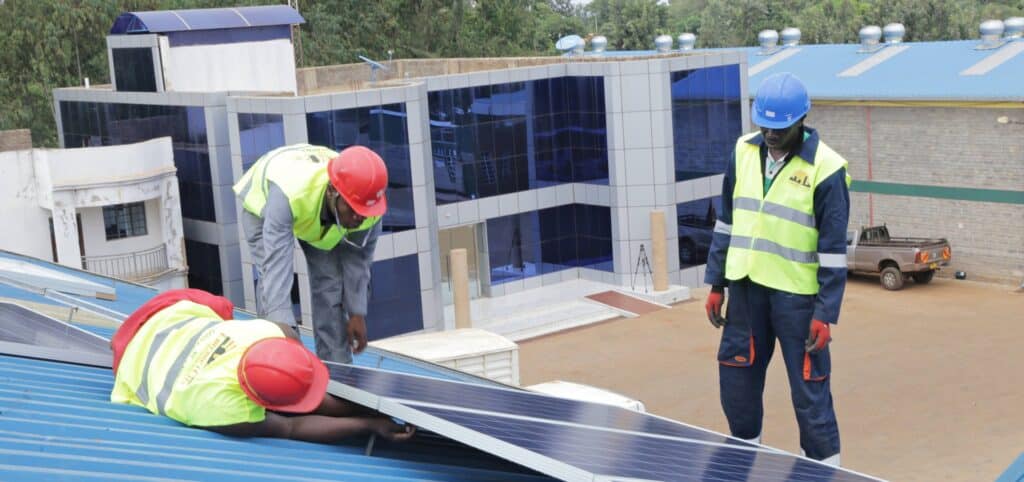
Generally speaking, we recommend going with a professional for the reasons below, which we’ll explain in greater depth in the following sections.
- Electrical permits are required
- Access to high-efficiency panels
- High risk of roof leaks
- Better warranty coverage
Permitting Can Be an Issue
First off, solar panel systems almost always require building permits to be filed with your local building department before any work begins. This is the case in all municipalities across Oregon. The state requires that an electrical permit be filed before any solar PV system can be deemed legal.
This is an issue for DIYers. While you can carry out the actual installation process yourself, you’ll still need to hire a professional to sign off on the system. This will drive up the cost of DIY solar conversion, so it’s important to consider the electrical underwriter’s certificate when estimating the cost of a DIY installation.
Getting a permit pulled and signed off on in OR can also be problematic if you make mistakes during the process of installing your panels. In our opinion, it’s worth paying for a professional to do the work to ensure it only needs to be done once.
High-Efficiency Panels
As we mentioned above, it’s important to choose a panel brand with a high efficiency rating in OR. Doing so will ensure that your system generates enough electricity to offset your energy bills, even in the frequently cloudy weather in the area.
Unfortunately, the efficiency of most DIY solar brands — like Renogy and Grape Solar — pales in comparison to that of SunPower, Tesla, Panasonic and other top brands that require professional installation. Residents in OR might not be able to offset enough of their electric bills using DIY equipment, given the lower efficiency ratings.
Risk of Roof Leaks
OR residents experience above-average rainfall, and many cities — particularly those in the eastern parts of the state — experience above-average snowfall as well.9 An overall above-average amount of precipitation means that roof penetrations through the shingles, which are required for solar panel installations, put OR homes at an elevated risk of roof leaks.
Roof leaks are one of the leading issues with solar panel systems installed by professional companies. If installations done by professionals with years of experience aren’t immune to roof leaks, then the risk of experiencing leaks when you install panels yourself is naturally even higher.
The elevated risk of roof leaks in OR is another one of the top reasons why we recommend professional installation over a DIY job for most homeowners.
Better Warranty Coverage
Finally, solar installation companies typically provide warranty coverage for solar equipment and panel efficiency that lasts for between 20 and 30 years. By comparison, the large majority of DIY panel brands usually have warranties that last for around five to 10 years.
Additionally, when you install your own PV panels, you get no warranty for the workmanship. When you hire a professional, you can get up to around 25 years of coverage for the workmanship.
Overall, you’ll get far better warranty coverage and more peace of mind if you hire a professional to install your panels rather than trying to do it yourself.
What Should Oregonians Look For in a Solar Installer?
Since there is a wide range of solar providers available in OR, and because you might not want to pick one of the companies above, it’s useful to have a list of qualities to look for when deciding on a company to hire for your solar project.
We’ll include some of the top factors to consider below, and we’ll explain each of these in greater depth in the following sections.
- Panel brands available
- Efficiency warranties
- Size of the company
- Year founded
- Industry affiliations
Panel Brands Available
Solar panel installation companies don’t all offer the same brands of equipment. Some companies stick to just one or two brands, while others have many to choose from. A wider array of equipment brands typically leads companies to score higher in our rankings because they allow more customers to balance specific energy needs, durability and budget.
In Oregon and much of the Pacific Northwest, we strongly recommend choosing a company that carries high-efficiency panels, like Maxeon from SunPower, Panasonic and Tesla. These companies all provide panels with above-average efficiency ratings that are more likely to produce sufficient energy in the low-sun conditions in OR.
Efficiency Warranties
Given that OR residents see less than 75% of the sunny days that the rest of the country does each year, the efficiency of the panels you install is a critical consideration.
While high efficiency ratings for panels are important, we also recommend considering the efficiency warranty included with your PV equipment. This tells you how much of that efficiency your panels are guaranteed to retain over the first 15 to 30 years of your panel ownership.
Size of the Company
The size of the solar provider you choose to work with can have a substantial impact on your experience.
Larger national companies often have lower pricing and better availability because they buy equipment in bulk and have greater resources for scheduling and installing. However, they usually come with less appealing customer service and might not have the same knowledge of local solar perks.
Smaller local companies typically have superior customer service and maintain better communication throughout the process, but they almost always come at a higher price and have less availability. Smaller companies are better for some homeowners looking for more guidance when applying for the federal tax credit (ITC) or local rebates, and they tend to have better customization options for your solar project.
Some can also expedite net metering or grid connection because they have closer relationships with local utility providers like PGE.
Year Founded
As solar power gains popularity in Oregon, more and more fly-by-night companies are popping up throughout the state to capitalize on demand. Unfortunately, these companies are often driven by nothing more than the profit motive, and their longevity in the industry is likely to be severely limited.
This is an issue for two reasons. First, it typically means poor customer service, especially after installation. Second, it means your warranties will be voided if the company goes out of business.
We recommend choosing companies that have more than five years in the industry, and especially those that have decades of experience and a proven history.
Industry Affiliations
Some PV companies are heavily invested in providing clean energy for a healthier environment or have philanthropic mission statements that suggest they don’t only care about profit. A good way to determine if a company aligns with these worthwhile values is to look at affiliations with solar organizations and associations.
Companies that are affiliated with organizations like the Oregon Solar Energy Industries Association (OSEIA) and the Oregon Solar and Storage Industries Association (OSSIA) usually rank higher in our ratings for these reasons.
The cost information presented in this article is derived from a comprehensive analysis, incorporating data from multiple industry sources. The average cost per watt per state was calculated based on figures from Consumer Affairs, Energy Sage, and Berkeley Lab’s Electricity Markets & Policy Department. Additionally, monthly energy consumption and the average monthly cost of electricity were sourced from the U.S. Energy Information Administration, ensuring a well-rounded and accurate representation of the information presented.
Methodology: How We Reviewed the Best Solar Companies in Oregon
We do our best to recommend only the best solar companies in Oregon. To that end, we spent hours researching different providers and looking into the services and quality offered. We ranked companies based on six main factors, which we’ll explain below. We believe each of these plays a significant role in your energy savings and overall satisfaction.
- Local reputation and reviews (20%): With around 70 installers to choose from and a high demand for solar equipment in the area, we think the reputation of a company means a lot. Choosing a provider with positive customer reviews and a positive service history helps avoid those installers that have minimal experience or may have popped up to take advantage of the demand, both of which are less likely to meet and exceed your expectations.
- Pricing and financing (20%): The average cost of a solar energy system in Oregon is slightly above average at nearly $25,000 before incentives. Since this is prohibitively expensive for many residents, we rank companies higher that maintain average or below-average pricing for their systems. We also prefer companies that accept a variety of payment options, as more options means greater accessibility overall.
- Services offered (20%): Since Oregonians have a great net metering policy, solar batteries aren’t as popular here as they are in other states. However, many residents look for ways to customize their systems, maximize their savings and improve their home’s energy efficiency. We rank companies higher if they provide access to a variety of services, including solar batteries, EV chargers, home efficiency improvements and more.
- Warranty coverage (20%): Warranty protection is crucial on a system that totals close to $25,000, the average cost to go solar in Oregon. We look for companies that provide average or above-average warranty protection. Specifically, we prioritize providers that have robust workmanship warranty coverage, as the weather in Oregon can put rooftop panels at a higher risk of damage, especially if the system is installed improperly.
- Company experience (10%): We prefer companies that have at least ten years of experience, as this shows longevity and reduces the risk of the company going out of business and, in doing so, voiding your warranty coverage. We also love it when companies have localized experience, as they are generally better equipped to meet the local needs in Oregon and are more likely to understand local solar incentives and rebate programs.
- Brand quality (10%): Finally, we look at the solar panel brands offered by each installer. We like to see a variety of brands, ideally coming in at different efficiency ratings and prices to give customers options to suit different needs.
Read More About Going Solar in Oregon
FAQ: Best Solar Companies in Oregon
Given the popularity of PV systems in OR, we get tons of questions from residents about the process and prospect of going solar in the area. We’ll answer some of these questions below.
Yes, the type of photovoltaic panel you decide on certainly matters! With most installers, you’ll have your choice of several different equipment brands, and the one you choose ultimately decides the equipment’s longevity, durability, efficiency, and cost.
In Oregon, most homeowners choose to prioritize cost and efficiency. Price is important no matter where you live, but energy efficiency is crucial in Oregon to take advantage of the minimal sunlight in the state.
With less than half the year’s worth of sunny days, a high-efficiency panel will help you take advantage of those sunny days and maximize savings on your utility bills, even when the weather is cloudy.
Finding the most affordable solar provider in Oregon usually involves calling the top companies that serve your area and getting free quotes from each. Unfortunately, this is not only time-consuming and tedious, but it also doesn’t always lead to the best value. With a major investment like a solar panel system, you’re far better off finding the best value for your money than opting for the most affordable installer.
Luckily, we make getting the most for your money simple with our EcoWatch rating, which helps you find a company that fits into your budget but also provides excellent value for the money.
According to the Solar Energy Industries Association (SEIA), there are 144 solar-related companies Oregon, of which 70 are installers.10
There are many factors you should consider when choosing a solar provider in Oregon, but most residents agree that a company offering high-quality panels backed up by a long-lasting warranty that covers energy production and physical damage is most important.
As mentioned earlier, Oregon experiences far more cloudy weather than the national average, especially during the winter. It also receives abundant snowfall that covers panels and limits production. Getting more efficient equipment means you’ll be able to capitalize on the sunlight that does reach your panels, saving you money in the long run, even if the up-front cost is higher.
Related articles
Top Solar Installers in Oregon Cities
Comparing authorized solar partners
-
- Most efficient panels on the market
- National coverage
- Cradle to Cradle sustainability certification
- Great warranty coverage
- Expensive
- Customer service varies by local dealer
A+Best National Provider1985SunPower Panels25-year all-inclusive warranty
Having trouble deciding? Click below and use our process to receive multiple quotes instead:

 233k
233k  41k
41k  Subscribe
Subscribe 


